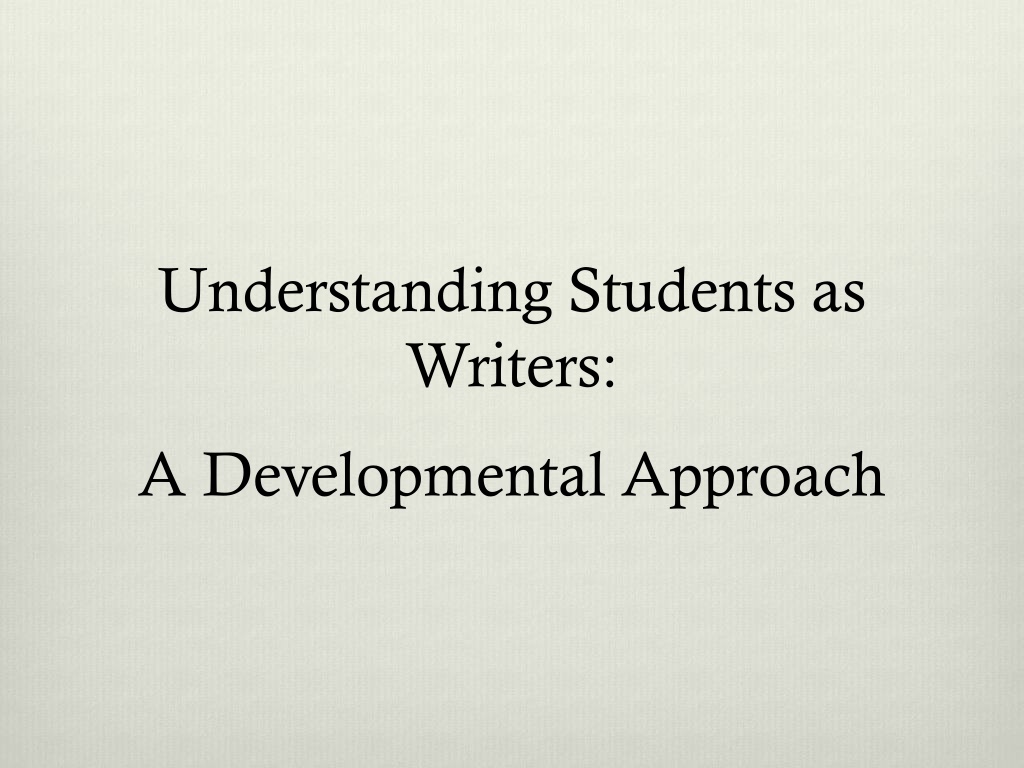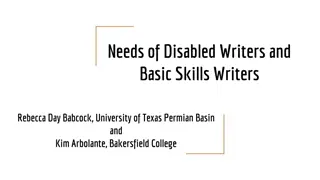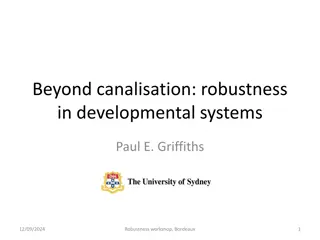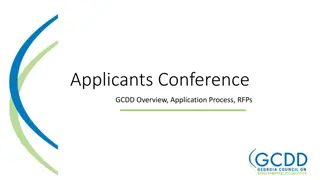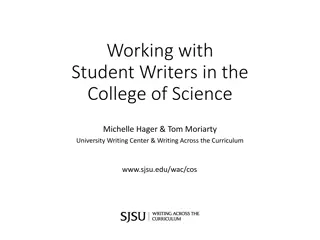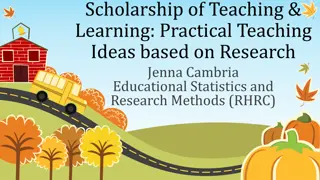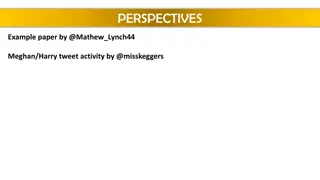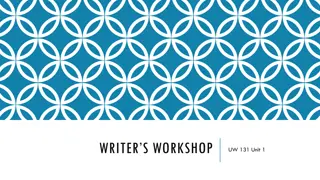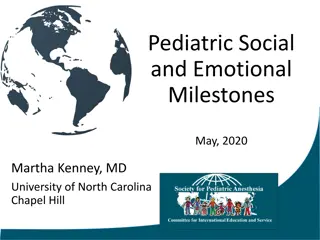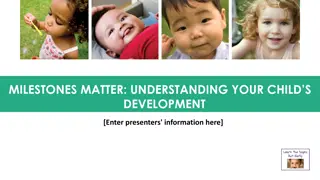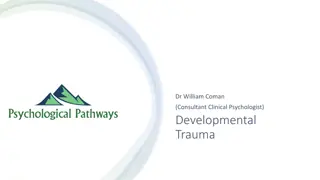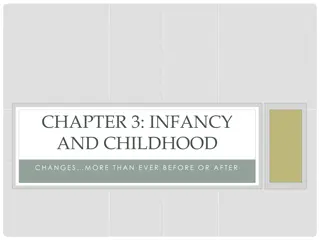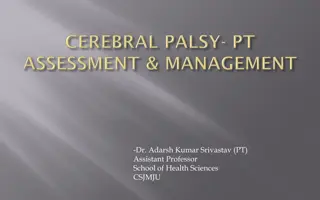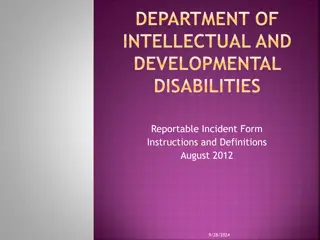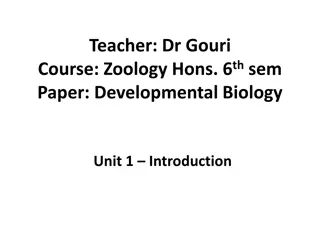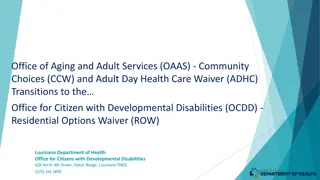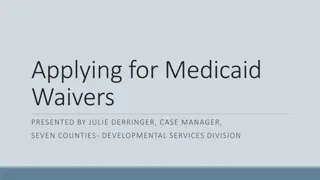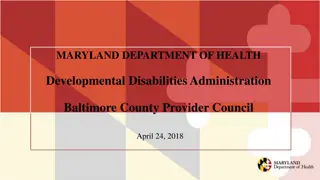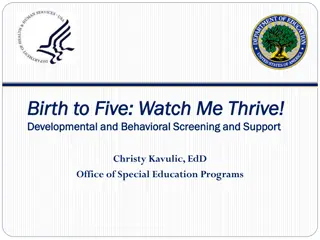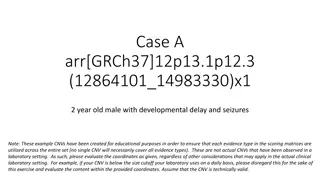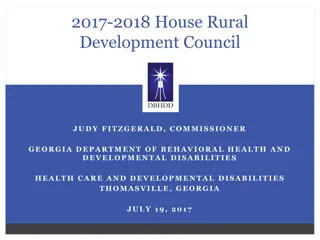Understanding Students as Writers: A Developmental Perspective
Exploring how individuals develop writing skills over time, from novices to experts, with cognitive scientists identifying stages of progression such as knowledge-telling, knowledge-crafting, and knowledge-transforming. The writer's brain adapts to handle more tasks simultaneously as complexity increases, leading to improved writing abilities through practice and experience.
Download Presentation

Please find below an Image/Link to download the presentation.
The content on the website is provided AS IS for your information and personal use only. It may not be sold, licensed, or shared on other websites without obtaining consent from the author. Download presentation by click this link. If you encounter any issues during the download, it is possible that the publisher has removed the file from their server.
E N D
Presentation Transcript
Understanding Students as Writers: A Developmental Approach
Two Questions: 1. (Big picture) How do people develop into good writers? 2. (Close-up) How can we help individual students move forward on that developmental arc?
Cognitive Development and Writing Skill (via Ronald Kellogg) Writing skills typically develop over the course of more than two decades (10,000+ hours). As skills progress, the type and amount of work performed by the writer s brain change.
The writers brain gradually learns to handle more tasks simultaneously, and at higher levels of complexity. The writer meanwhile learns more behaviors and techniques that help the brain to function at this higher level.
Cognitive scientists have observed three general stages in this progression, from novice, to maturity, to expert. Progress through the stages is not uniform; we often see traits from more than one stage in a single piece of writing. Skills may regress at times.
Kelloggs Stages of Writing Skills Development The novice writer progresses from a stage of knowledge- telling to a stage of knowledge-transforming characteristic of adult writers. Professional writers advance further, to an expert stage of knowledge-crafting. The key distinction among the stages lies in how knowledge is brought into the writing process and in what happens to knowledge in the process. (143, Bereiter and Scardamalia)
Macro-stages in the cognitive development of writing skill (Kellogg, 2008) Stage One: Knowledge-telling Stage Two: Stage Three: Knowledge-crafting Knowledge-transforming
Stage One: Knowledge-telling Using writing to tell what the author knows Planning activity in the brain is generally limited to idea retrieval. Ideas do not change much as they are retrieved from memory and translated to the page. Reviewing and revising are minimal.
Knowledge-telling, cont. This is the first kind of writing most children do: On my happiest birthday ever, we had cake and presents, and my grandma was there. Recall process is very similar to that used in oral conversation. The end result is generally a re-statement of the writer s thoughts.
Stage Two: Knowledge- transforming While retrieving ideas and composing, the writer considers whether the text says what she wanted it to say, andwhether she herself believes what the text says. In the process, the writer contemplates not only changes in the text, but changes in what she wants to say. Example: What do I really mean by happy? One reason I was in such a good mood was that my uncle didn t come to the party. I was afraid of him.
Knowledge-transforming, cont. The act of writing becomes a way of building new representations of knowledge rather than simply retrieving old ones. There is typically extensive interaction among planning, language generation, and reviewing activities. The text produced is a greatly condensed version of the author s thought process.
Stage Three: Knowledge- crafting While composing and/or reviewing, the writer imagines, with a high degree of specificity, how a reader is likely to interpret the text (from Ong). Both of the already established representations of the text are analyzed for potential reader interpretation: What will readers infer about my absent uncle? How will they interpret afraid ?
How can we use this framework to help writers? We can prioritize what we know will move them forward: 1. Create a dialogue between the writer and their writing. Help them hear the page talk back to them. 2. Give them readers.
Respond As a Reader Foreground the reader's confusion as the problem, rather than "correctness. Instead of saying, This is a comma splice, try The parts of this sentence are connected in a way that makes it hard to understand who is doing what.
Illuminate Potential Misreadings Show how readers may stray off the writer's intended path: When you wrote, She fed steak to her dog in a silver bowl, I thought the dog was in the bowl. Help them hear small-scale problems: Read a sentence or two aloud to highlight missing words, agreement problems, etc.
Bonus: Helping readers understand our ideas is a much more rewarding task for writers than correcting grammar. Remind students that reading is hard work and that readers need a lot of help from the writer (E.B. White said the average reader was in trouble about 50% of the time). Likewise, remind them that readers have definite expectations, and when those expectations are not met, confusion and misreading result.
Use Questions to Encourage Knowledge-transforming "Did you mean X, or Y? is often a productive way to unpacked tangled sentences. It can also reveal places where the writer isn t yet sure what they mean a sign they are in transit from Knowledge-telling to Knowledge-transforming. They may want to excise the text that raises new potential meanings. This can feel safer and more likely to be correct. You may have to convince them that expressing complicated ideas is their goal.
Use Peer Review You may not have abundant resources, but you probably have lots of students! Let them be readers for each other. Simply reading their work aloud will help them find and correct many problems, even if the listener says nothing. For more advanced peer review, give students specific guidance, and model the kind of feedback you want them to give each other.
Help Them Prioritize When a student receives feedback, try to help them formulate a plan to do something with it. What do they think they should do first? What do they expect will be hardest? If they can walk away with a concrete idea of their next few steps, they re more like to engage productively in the revision process.
Student Writing Sample Do you notice any evidence of Knowledge-telling, Knowledge-transforming, or Knowledge-crafting? What are a few things you might do or say to help this writer improve this piece of writing? (Note: You don t have to address everything that needs improvement!) What do you think is the most important piece of feedback you d want to give this student?
For more peer review specifics: See Shelley Reid's peer review guide at http://mason.gmu.edu/~ereid1/teachers/tch guidepeerrev.htm. Reid walks instructors through implementation strategies specific to your goals and teaching situation. Also links to a compendium of peer review prompts.
References Bereiter, Carl, and Marlene Scardamalia. The Psychology of Written Composition. Hillsdale, NJ: Erlbaum, 1987. Kellogg, Ronald. Training Writing Skills: A Cognitive Development Approach. Journal of Writing Research, 2008, 1(1), (1-26). Ong, Walter. The Writer s Audience is Always a Fiction. In T.J. Farrell and P.A. Soukoup (eds.) An Ong Reader: Challenges for Further Inquiry. Cresskill, NJ: Hampton Press, 2002.
